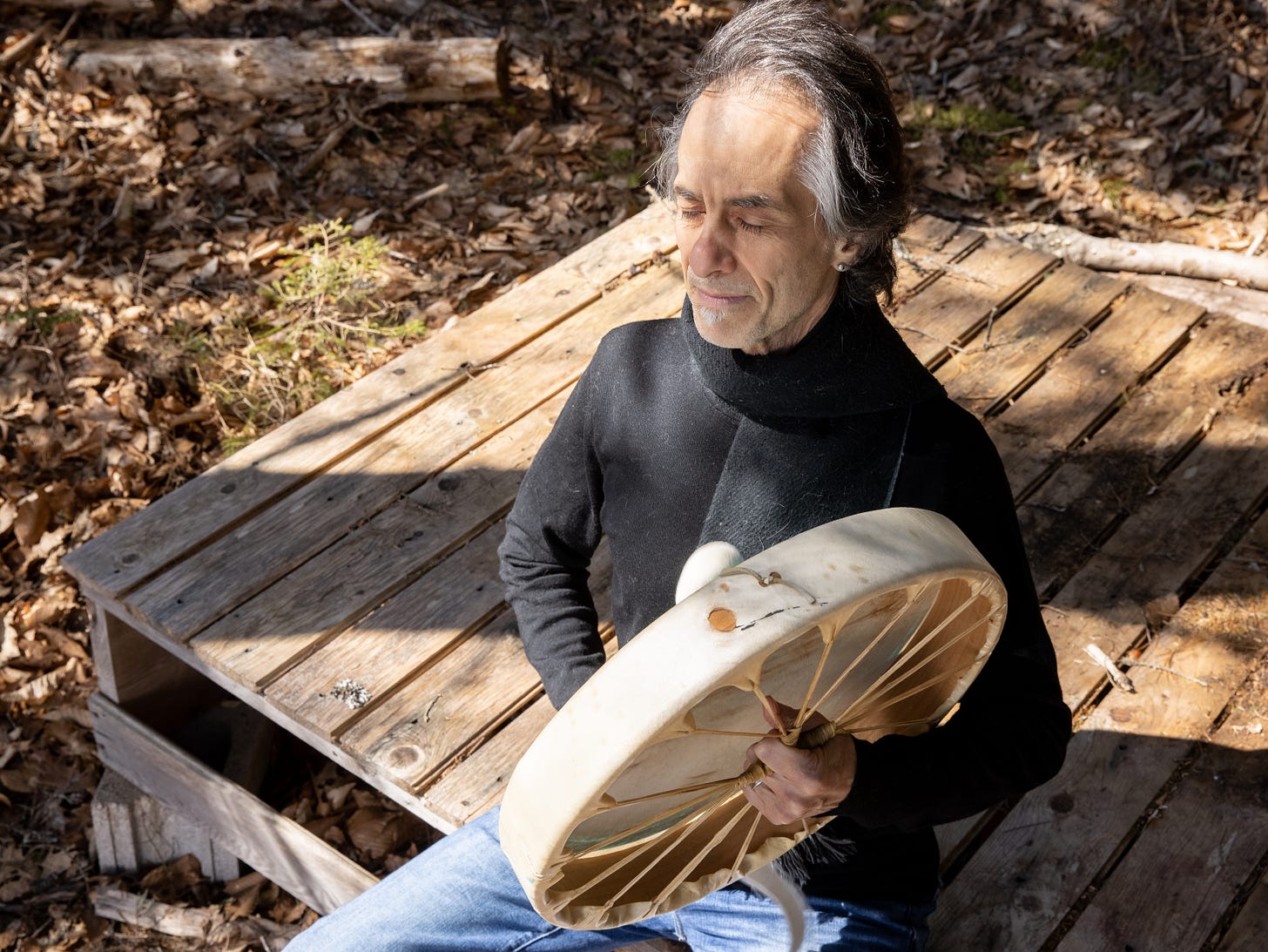Q&A with Shamanic Practitioner Randal Lyons
Shamanism, Chinese Medicine, definitions of addiction
This series showcases conversations with experts who are sober themselves and working in the recovery space. Today’s edition features
, a Doctor of Chinese Medicine1 and shamanic practitioner whose spiritual, integrative program of addiction recovery has been implemented in holistic clinics, premier treatment centers, and his private practice. You can access the online version of The Program through his newsletter, .You’re coming up on 30 years sober. How has your relationship with sobriety changed over the decades?
To paraphrase the great philosopher Shrek: Sobriety is like onions. They’ve got layers. Looking back, I can see that I was just like anyone else: after cleaning up the wreckage of active using, I then had to go inwards and investigate all of the reasons why I did what I did.
Remembering, honoring, and healing those original wounds from childhood was—and still is—a process that has turned into a practice, which I apply to my current life. It’s not: Boom! Healed. Sure glad that pesky limiting core belief of not-being-enough is gone.
Nor would we want it that way, because the ability to deal with broken-heartedness and somehow create beauty from it and then share that with others…well, that’s what sobriety is all about.
Actually, that’s what being a human is all about. The work of sobriety can be applied to all of the incoming, inevitable heartbreaks and losses that lie ahead. Layer after layer.
After getting sober, you became a Doctor of Chinese Medicine and a shamanic practitioner. How have those modalities informed and impacted your recovery?
These two avenues of medicine—shamanism and Chinese Medicine—were literally keeping me alive in those last years of active addiction. When I got sober, I knew I had to get rid of all the slippery people, places, and things—which meant I had to clean out my entire life except for these two “hobbies.”
With nothing else to turn to, I dived into these modalities wholeheartedly. I came out the other side of formal and informal education with ways to help others. And helping others can be the best way to help yourself. I often tell clients, “I need you just as much as you need me.”
After a little explanation, they get it. Because one of the most powerful aspects of recovery, and life, is when we have a community that sees us, understands us, and provides us with a place to put our gifts.
I believe that’s why so many professionals who work in recovery are in recovery themselves. It’s a deeply spiritual and deeply human desire to want to turn around and provide a hand-up to others who are stumbling along the same path we’ve walked before them.
In shamanic and/or Chinese Medicine terms, how do you define addiction?
In treatment centers, I had to appeal to large groups representing a wide range of beliefs and backgrounds. This forced me to present the information in ways that invited them in, made them curious, and encouraged engagement.
Coming from this place, I arrived at the following definition:
Addiction is the patterned and repetitive use of any substance or action that attempts to fill a Void (and/or fix a Wound and/or fill a Need) but which instead brings results that reinforce the origins of the pattern.
With that definition, I can go through it line-by-line and explain it to just about anyone using a language they understand—whether they view things from a psychological, scientific, energetic, or spiritual perspective.
Meanwhile, from a shamanic point of view, I describe addiction this way:
Addiction is a spell. This spell is a lie. The only reason it exists is because you believe the lie…and then go out and make it true.
I love the simplicity of that definition and that its structure is built upon relationship. This leaves so much room for exploration. I look forward to deepening this avenue of investigation in the future.
If you could go back and give a message to your “early sober self” (one month or even a year into sobriety), what would it be?
Grasshopper, don’t believe the hype, don’t fall in lockstep, don’t pay attention to the opinions of others who are sober but miserable. Trust your relationship to spirit and to what helping spirits have instilled in your heart, soul, and bones and which you know to be true.
Now, put your mouthguard in, get back out there, and kick addiction’s butt.
Thank you, Randy! We’re grateful for your amazing work in the recovery space and community.
We’d love for you (yes, you!) to share in the comments:
How do you define addiction?
Does your experience of addiction reflect one or both of Randy’s definitions? How so?
And if you found this Q&A helpful, please tap the little heart. It lets others know there’s something useful here and will help us grow this community.
Want to be published on Sober.com? If you’re a sober writer, we invite you to contribute! Reach out to hello@danaleighlyons.com for details.
Technically, Randy is a licensed Doctor of Oriental Medicine. Unfortunately, some regulatory bodies have been slow to recognize the racist implications of the term “Oriental,” so we’ve substituted “Chinese” here.






I love these definitions. Personally, I think of addiction as a separation from self. We are attempting to avoid or escape some aspect of our experience (like challenging thoughts, memories, emotions), which can't be healed until it can be met.
I’m obsessed! The definitions of addiction from both shaman and Chinese medicine are so on target. I especially love what you would’ve said to your younger self in sobriety, I’m still telling myself the same thing but finally living in the truth of it. Thank you for sharing 💜